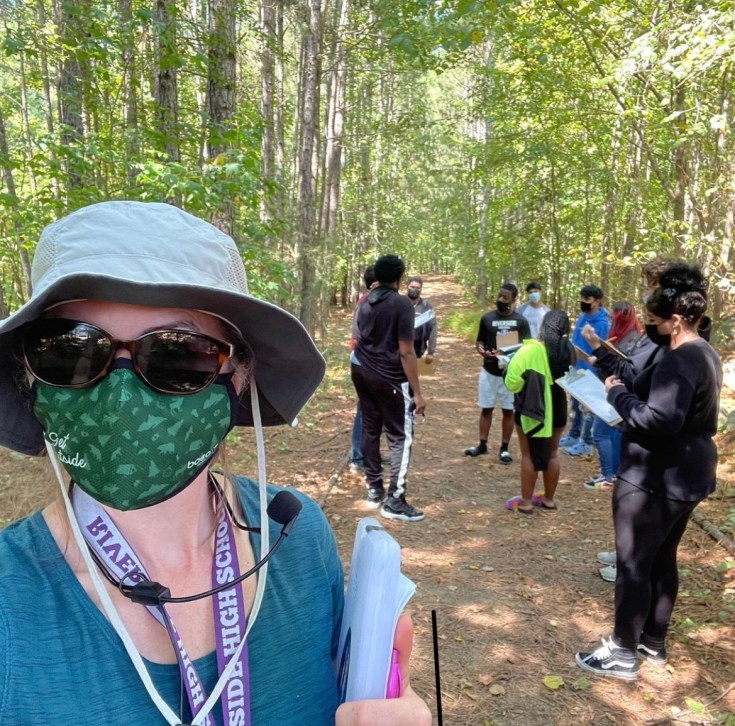Many Riverside teachers believe they are underpaid for all they do.
The average teacher salary in North Carolina is about $54,000 per year. The starting salary for a first-year teacher is $37,000 and pay increases about 1.5 percent per year of experience.
“The National Education Association in April ranked the average teacher pay in each state and found the average teacher salary in North Carolina was $54,150 — putting the state No. 33 nationally. The average starting salary ranks even lower — No. 43, with an average of $37,049, the NEA said,” Joedy McCreary, CBS digital data reporter.
In addition to the base salary, teachers can earn an 11.5 percent pay increase by earning a certification from the National Board of Professional Teaching Standards. Some teachers earn more if they have a master’s and/or doctorate degree too. However, the state stopped awarding salary supplements for advanced degrees in 2013, so any educator whose career began after that does not receive the extra pay.
Many experienced educators find themselves teaching not because of the pay, but because they are genuinely passionate about teaching.
Mika Twietmeyer, the 2019 DPS teacher of the year and recipient of the Outstanding Science Teaching Award in 2018, has taught biology at Riverside for 14 years. It was her passion for science and the teachers she had in high school that made her want to become an educator.

“I remember viewing my teachers as holders of a lot of knowledge,” Twietmeyer said. “I was inspired to be able to share science with different students, and figure out creative ways to present scientific information to a broad group of people, including students.”
Sara Moore has been teaching orchestra for 21 years and has been at Riverside for the past 14. Moore attended Appalachian State University, where she majored in piano, and was inspired to become a teacher by her love for orchestral music.

“I really enjoyed my orchestra class in middle and high school, and I just knew that I wanted to do that,” Moore said, “I started learning piano and violin, I knew I wanted to do something with music when I grew up.”
Although many teachers love what they do and are viewed in a positive light, they also often feel undervalued with all they are capable of doing.
“Surveys show that people feel favorable towards teachers,” Twietmeyer said. “However, not many people want to become teachers. Oftentimes we’re not seen as the experts. And we really are the experts. We’re the experts for what our students need and how to deliver the content to them. And oftentimes, we’re not authorized to be such experts.”

“The hardest thing about being a teacher is the lack of support from the government,” says Moore. “And sometimes, the community, but mostly the government, and just having to do more with less resources.”
Even though teachers only need a bachelor’s degree in their specific subject to become a teacher in North Carolina, many occupations that also only require a bachelor’s degree pay more per year. The salaries of a sales engineer or materials scientist are almost twice as much as a teacher’s annual salary, according to Rachel Gilett, a senior lifestyle editor at Business Insider.
“Roughly 55 percent of elementary school teachers and 59 percent of secondary school teachers held a post baccalaureate degree in 2015–16, whereas 45 and 50 percent, respectively, held a post baccalaureate degree in 1999–2000,” Tim Walker, a member of the National Education Association, wrote in a 2018 article about the background of the average U.S teacher.
“When you look at comparative professions with the amount of degrees and credentialing that a lot of educators have, especially in North Carolina, there would be a lot to make up for the professional wage gap,” Twietmeyer said. “So not even just teaching compared to other states, but nationally, compared to another person who has a master’s degree or advanced degrees. teaching and education are majorly lacking.”





